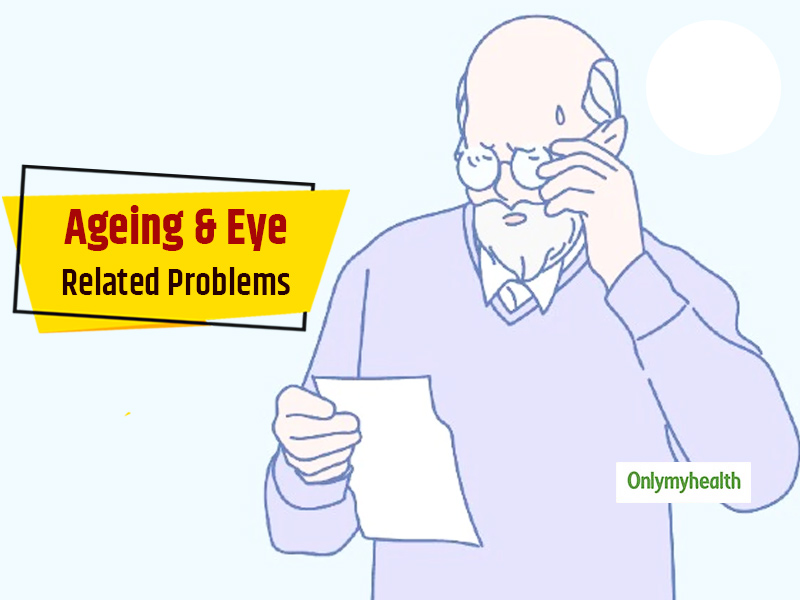
The human body undergoes a natural ageing process and the eye as an organ is no exception to this. The eye is like a camera; two lens systems (Cornea and the natural lens) with a screen (Retina) and a cable (the Optic Nerve) that connects the eye with the brain. Various ageing changes that occur in an eye are fundamentally natural with no serious consequences, but rarely can it affect the eyesight to a major extent. Let’s understand some issues that are experienced as we age;
Understanding Presbyopia

Presbyopia happens around the age of 40, wherein one finds it difficult to clearly see nearby objects, and is almost universal. In this condition, the fine structures and muscle that support the lens to focus on closer objects, become stiff. Due to this the natural lens is unable to change its shape when looking for nearby objects. People typically over the age of 40yrs begin complaining of difficulty in reading fine prints or having to keep the reading script more distant from the eyes to understand the lettering.
SOLUTION: Reading glasses in the form of mono-focal, bifocal or progressive lenses are generally prescribed. There is usually a gradual increase in reading glasses number from 40 yrs up to 55yrs as Presbyopia worsens.
Cataract
Another common ageing change in the eyes is Cataract formation. Here, the lens loses its normal transparency and becomes opaque & cloudy. A decrease in vision can vary depending on the grade of the Cataract.
SOLUTION: Surgical treatment is usually necessary except in the very early stage of the condition, where changing one’s spectacles may suffice.
Dry Eyes

Dry eyes are common with increasing age as the tear production reduces. This occurs especially after menopause in women. It causes dryness, grittiness, red and tired eyes.
SOLUTION: It is easily treated with supplement teardrops/ eye lubricants in the majority of individuals.
Age-Related Macular Degeneration
Another structure of the eye that can be affected (usually after 65yrs of age) is the Retina. The condition is called AMD or Age-Related Macular Degeneration, where the centre portion of the Retina becomes weak and thin, affecting reading vision to some degree. Rarely AMD could result in fluid and blood accumulation in the central Retina and affects vision seriously. One should know how to manage age-related macular degeneration to avoid complete blindness.
SOLUTION: Currently, newer injection therapies provide hope for many patients
Glaucoma
Lastly, an important disease commonly associated with ageing is Glaucoma. The fluid that is normally present inside the eye is in constant circulation. With age, the exit passages become stiff resulting in poor fluid drainage, which further results in high eye pressure causing Glaucoma. If left untreated, it can damage eyesight.

SOLUTION: Most of the patients are treated with eye drops with satisfactory results. In a few operations may be required to control the eye pressure.
Also Read: Effective Tips To Live With Glaucoma
In addition to the normal wear and tear with ageing, sunlight is one contributing factor that fastens the ageing-related changes. Eating food rich in antioxidants like Berries, Beans, roots, Capsicum etc. reduce the ageing process of the Retina and protect from age-related wear and tear damage. Using ultraviolet filter sunglasses while going out throughout one’s life certainly reduces light-induced damage to the Retina. Regular eye check-ups after 40 yrs and keeping one’s Diabetes & Blood Pressure under control will certainly go a long way in keeping the eye in good health.
With inputs from Dr P. Suresh, Head of Ophthalmology Department, Fortis Hospital, Mulund
Read more articles on Other Diseases
How we keep this article up to date:
We work with experts and keep a close eye on the latest in health and wellness. Whenever there is a new research or helpful information, we update our articles with accurate and useful advice.
Current Version